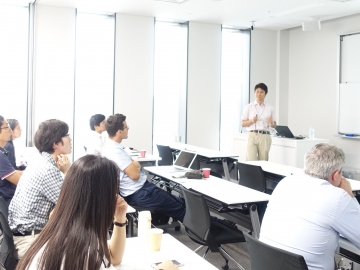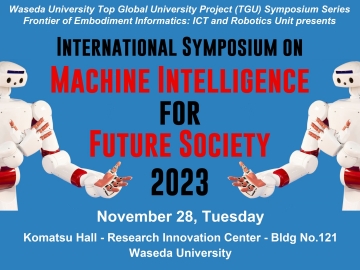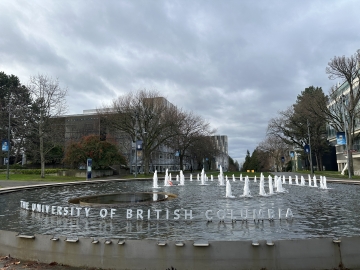Organized by the TGU Center for Positive/Empirical Analyses of Political Economy, the Pan Pacific Game Theory Conference was held on September 4 and 5 ,2017 at Waseda University. Now in its 10th year, this conference aims to stimulate discussions and debate among Asian, European and American researchers who are leading the field from all over and outside Japan. The conference allocates sufficient time for researchers to present new theories and basic research so that they can discuss them with participants. Many challenging topics were presented this year, and through cross-sectional discussions, the participants learned about the latest research outcomes.
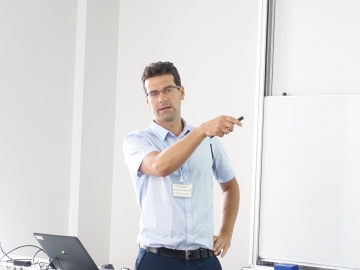
Professor Michal Lewandowski

Professor Yosuke Yasuda
On the first day of the conference, Professor Michal Lewandowski from the Warsaw School of Economics spoke about a new substitute model for the expected utility hypothesis. Professor Lewandowski focused on the relationship between stochastic income fluctuation and preference, and proved that various anomaly could be explained by stochastic weight functions, an approach different from conventional models. Professor Yosuke Yasuda gave a presentation about competition brought by markets and trade-off analysis on redistribution policy. He shared a new perspective on efficiency and equality together with trickle-down economics, a new theory which has been garnering attention in recent years. There were many questions from the audience about how to interpret the model setting and its outcomes.
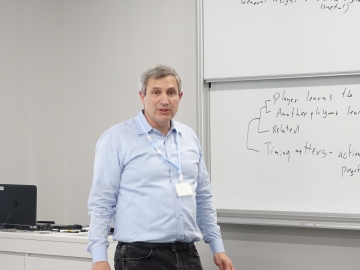
Professor Yossi Feinberg
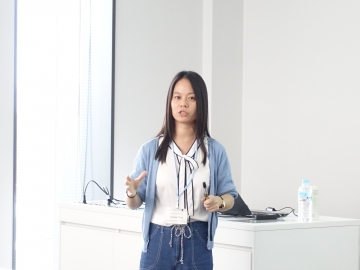
Professor Liping Tang
In a presentation by Professor Yossi Feinberg from Stanford Graduate School of Business, a discussion was held on the timing of when a game actually starts in game theory, and participants shared their ideas and thoughts on the topic using a simple theoretical model. Furthermore, there were presentations on ambiguity of linguistics (communication) adapted for signaling games by Sun Yat-Sen University’s Professor Liping Tang and analysis on belief change of players in inductive game theory by Waseda’s Professor Ryuichiro Ishikawa.
At the end of the first day, a reception was held for faculty, graduate students, and students from Waseda and other universities. The students were able to continue their discussion on the conference topics with the researchers, allowing them to further deepen their understanding. It became a valuable opportunity for them to ask for advice on their research and learn about frontline research.
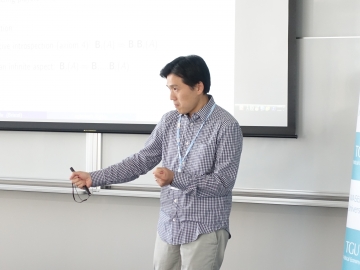
Professor Tai-Wei Hu
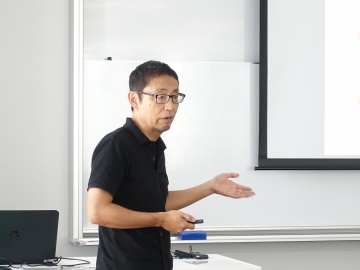
Professor Michihiro Kandori
On the second day, Professor Tai-Wei Hu from the University of Bristol shared his research on recognition in game theory using epistemic logics. Professor Michihiro Kandori from the University of Tokyo presented case studies on Japan’s labor unions and reported its data analysis and theory verification, which was quite similar to repetitive games of intergenerational overlaps. There were many questions on the theory and response to the data, and Professor Kandori emphasized the importance of case studies using game theory.
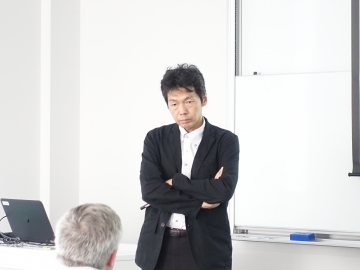
Professor Tadashi Sekiguchi
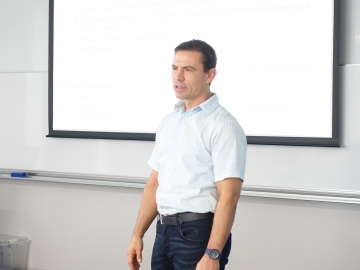
Professor Nathan Berg
Additionally, Professor Tadashi Sekiguchi of Kyoto University spoke about multimarket contact under imperfect observability and impatience, and Professor Nathan Berg of the University of Otago gave a presentation on guessing others’ preferences through experiences. Lastly, Waseda Professor Mamoru Kaneko ended the conference with his presentation on expected utility theory using probability grids and incomparabilities.
